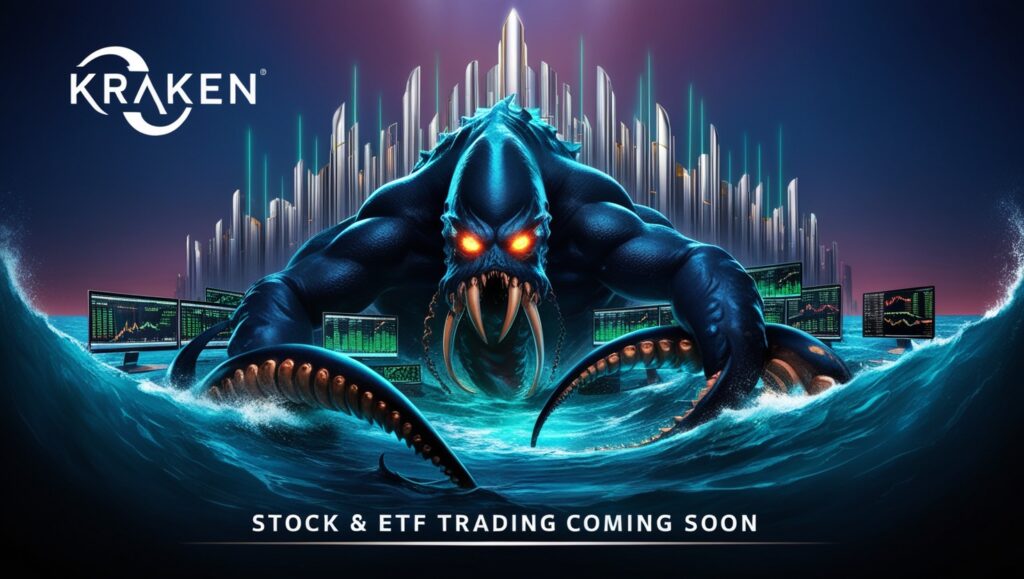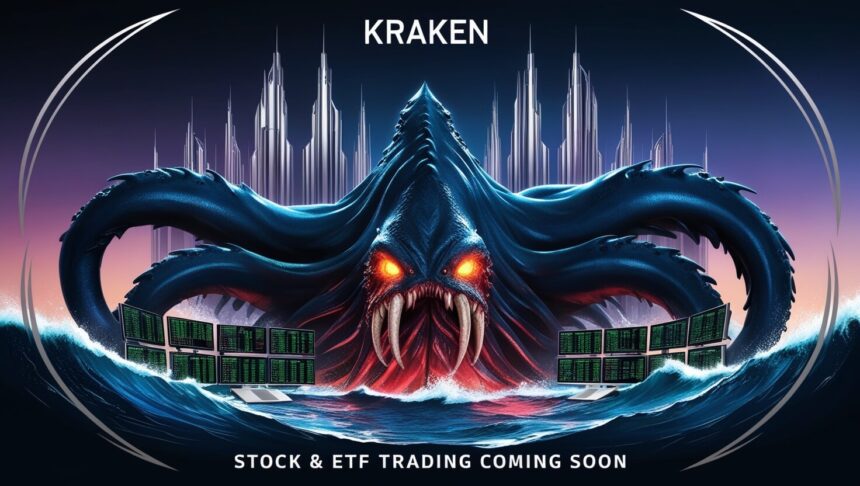Kraken, a major cryptocurrency exchange, is stepping into traditional finance by launching commission-free trading for U.S.-listed stocks and ETFs. This new feature is available through Kraken Securities, the platform’s FINRA-regulated arm, enabling users to access more than 11,000 stocks and ETFs directly from their Kraken accounts.
The rollout starts in ten locations: New Jersey, Connecticut, Wyoming, Oklahoma, Idaho, Iowa, Rhode Island, Kentucky, Alabama, and Washington D.C. Kraken refers to this as the beginning of a broader, phased national rollout, with plans to expand across more states soon. Global markets like the UK, Europe, and Australia are also on the roadmap.

Kraken’s new stock trading feature offers a unified platform where users can handle stocks, crypto, stablecoins, and cash in one place. It streamlines the trading experience by letting users quickly reinvest their funds into other assets—be it stocks or crypto—without needing to move money across different apps.
Co-CEO Arjun Sethi highlighted this shift, saying that crypto is evolving into a core infrastructure for trading assets beyond just digital currencies. With users demanding 24/7 access and more seamless tools, Kraken is aiming to meet that need by combining markets under one roof.
Kraken’s move into equities comes after achieving key regulatory milestones. It recently gained an Electronic Money Institution (EMI) license from the UK’s regulator and is working on obtaining a broker-dealer license from FINRA in the U.S., further cementing its place in traditional finance.
This expansion reflects Kraken’s larger vision for the future. According to Sethi, entering the equities market sets the stage for asset tokenization—a system where traditional assets are represented on blockchains.
Kraken believes that tomorrow’s trading landscape will be global, continuous, and blockchain-based, and it wants to lead the way in making that vision a reality. By establishing itself in both cryptocurrency and traditional equity markets, Kraken is creating infrastructure that could later support.










